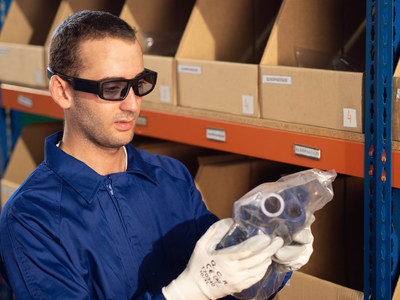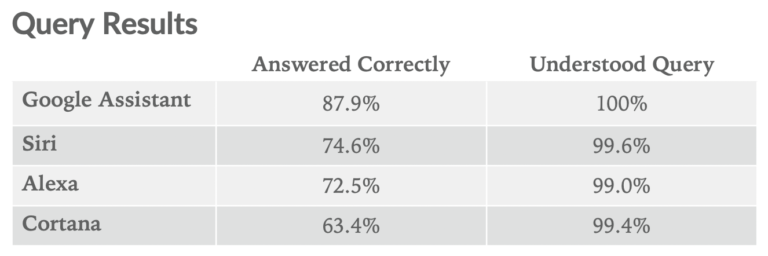 Chances are pretty good that someone in your household received a smart speaker device last month, whether under a tree this past Christmas or one of eight presents given out during the Festival of Lights.
Chances are pretty good that someone in your household received a smart speaker device last month, whether under a tree this past Christmas or one of eight presents given out during the Festival of Lights.
We’ll have an official tracking for you in just a few months when Techsurvey 2019 is released. With more than 500 radio stations across North America participating, we’ll have a solid bead on how these but suffice it to say, these handy little assistants are gaining traction with each passing year.
And as predicted, CES 2019 is being swarmed by “voice,” visible and audible throughout the Las Vegas Convention Center and other exhibit halls. Alexa, Google, and several other voice platforms are everywhere – in dashboards, in kitchen appliances, and even on your body in the form of smart  glasses by Vuzix.
glasses by Vuzix.
By the way, if this product reminds you of Google Glass, you and I are on the same page. This Android-compatible wearable has Augmented Reality features, using Alexa for commands.
And then there’s cars. As you know from our DASH Conferences in 2013-14-16 to our CES tours, automotive has been one of the focal points of our consulting efforts.
And at this year’s over-the-top event in Las Vegas, we’re witnessing the confluence of automotive and voice. And it’s moving fast.
Today, we saw this beautiful example of “Motor City Metal” you see pictured here.
 This Mustang is loaded – not just with horsepower, cool wheels, and other performance features you’re used to seeing in hot new cars.
This Mustang is loaded – not just with horsepower, cool wheels, and other performance features you’re used to seeing in hot new cars.
It is also multi-lingual.
That’s right. The car’s head unit speaks Alexa, Hey Google, SYNC, and Siri. Thanks to seamless integration with all these platforms, you can easily access Apple Car Play, Android Auto, Amazon Alexa, and of course, the native language Ford builds into its system. We sat through a fascinating demo where we toggled through all these languages.
Ford doesn’t really care all that much about which voice – or voices – you choose. They’re more concerned your road to content is seamless, safe, and simple.
Clearly, this takes the term, “share of voice,” to a whole different level.
But a key question you often hear from consumers revolves around which voice is best. Amazon may have a big lead over Google in the smart speaker race, while Apple is struggling. But in terms of which voice is best – most accurate, most responsive, and productive – well, no one knows for sure.
Until now.
The team from Loup Ventures put these rapidly familiar voices to the test, running Alexa, Siri, Google Assistant, and Cortana a battery of 800 questions.
And the results are below:

Clearly, Google has the lead when it comes to answering questions correctly, followed by Siri (Apple) and Alexa (Amazon). But look at those amazing comprehension scores. Many of your recall the original Dragon dictation software that hit the market 20 years ago – a frustrating speech recognition experience.
In the just the last year or two, there’s been quantum improvement. The Loup Ventures test included queries about local landmarks, commerce (where to buy things), navigation, information (tonight’s sporting events), and basic commands.
And perhaps the most telling stat is the rapid improvement each of these voice platforms has achieved in just one year. Each is up 7-9 percentage points, with Siri enjoying an impressive 22% improvement rate in just 9 months.
According to Loup Ventures’ analysis, Alexa made great strikes in the information section of the test, from pulling up stock quotes to nailing historical facts.
As these scores break the 80-90% level, the research team took on the question of whether these voice assistants will ultimately be able to answer pretty much any question asked of them.
“Probably not,” is their response, but all these voice platforms will get “smarter” as they become more common in devices in which they’re embedded (TV, lights, cars, etc.).
This progress report underscores the notion that not only are smart speakers rapidly showing up in more living rooms. offices, bedrooms, bathroom, and garages, many different voice will co-exist together.
And that means broadcast radio needs to become “multi-lingual” to be discovered, keep pace, and stay in the game.
So, who’s got the best voice?
They’re all getting smarter.
And it may come down to which voice – or language – you’re most comfortable with.
Parlez-vous Alexese?
You can access the Loup Ventures study here.
Thanks to John Ellis for the heads-up.
- What To Do If Your Radio Station Goes Through A Midlife Crisis - April 25, 2025
- A 2020 Lesson?It Could All Be Gone In A Flash - April 24, 2025
- How AI Can Give Radio Personalities More…PERSONALITY - April 23, 2025




Have you driven a Ford, lately?
Have you had a one-on-on chat with your Ford lately??
Good question!